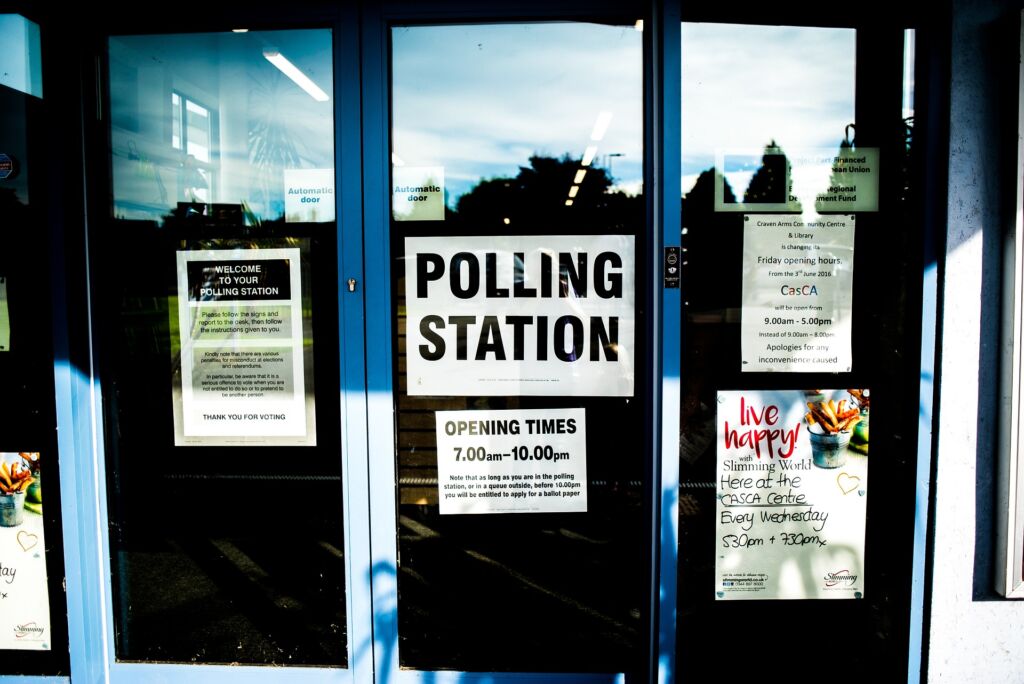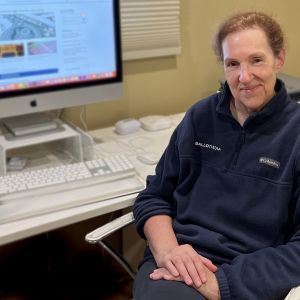The Pathfinder: Slow Down and Savor Voting

Politics has its own full and colorful language. Our political vernacular draws on the experiences and activities of everyday life to help simplify complex messages into terms most people will instantly recognize.
One of the richest sources of metaphor and imagery for politicians and the media who cover them are competitive sports. The late New York Times columnist William Safire’s Political Dictionary has a lengthy entry on sports metaphors, reminding us that even Shakespeare’s Henry V knew the value of a good sports metaphor as a way to motivate the troops:
“I see you stand like greyhounds in the slips, straining upon the start. The game’s afoot…”
With a bit of tinkering, this could be part of a great get out the vote speech for a modern candidate.
Food, too, has been a steady source of political metaphor, with candidates running on “meat and potatoes,” “bread and butter,” or “kitchen table” issues. Raucous campaign speeches are “red meat” for the base. Is there a politician who hasn’t appropriated the expression “bringing home the bacon?”
Political language can also be oversimplified. In recent years, entire states and their millions of residents have been divided and reduced into two competing teams: Red and Blue.
We need a new approach, a new language, and a more thoughtful, productive way to think about and practice politics.
We can turn again to food for inspiration. But this time, to the self-styled “slow food” movement, and its focus on profound social connections, deep traditions, and complex lore surrounding homemade, nutritious meals.
This movement began in Rome in 1986, when a group of people gathered to protest the opening of a McDonalds at the Spanish Steps. According to the Slow Food Movement’s website, “[i]nstead of throwing rocks and yelling, the activists brought in a big bowl of penne pasta and shared it with the crowd that gathered, chanting: “We don’t want fast food. We want Slow Food!”
From that beginning, a worldwide movement to slow down, enjoy – and savor — real food has taken hold, shaping how millions of people interact not just with the food on their plates, but with each other. That’s the sort of thing we should seek in our political life, too.
We don’t want fast politics and elections. We want slow voting, and thoughtful voters.
BALLOTPEDIA
We don’t want fast politics and elections. We want slow voting, and thoughtful voters.
Slowing down is contrary to the way politics is currently practiced in America. While politics used to have its seasonal lulls between elections, now we have a constant drumbeat of information pouring-in at increasing speed through multiplying platforms 24 hours a day.
It’s all very much like fast food — a constant wave of high-calorie, low-nutrition ingredients (empty calories) that may fill us up, but aren’t good for our health. All this speed means there isn’t much time left for the individual voter to stop and think about issues in any meaningful way. And for some political professionals, that’s the goal – to get voters to bolt down information without thinking about its worth, nevermind its truth or accuracy.
Like slow food, slow voting means rejecting the firehose of low-quality information in favor of purposeful, careful, and nourishing exploration.
A surprising number of Ballotpedia readers have already adopted this slow voting approach to politics. One place we’ve seen it happen: in the popularity of our online bill tracker that allows individuals to follow election administration legislation in every state legislature, from introduction to enactment.
These are bills that have to do with the nuts and bolts of democracy: voter registration, voter identification requirements, maintaining voter lists, ranked choice voting (for and against) and a host of other topics that don’t normally pop up on the list of issues voters tell pollsters are important to them.
The popularity of our election administration tracker is a testament to the inquisitiveness and engagement of Ballotpedia readers, and a sign that a lot of people are slow-cooking, so to speak, their understanding of politics and policy as it relates to election administration. We have more legislation trackers in the works. Will they be as popular as slow cookers among our readers?
We’ll find out. But in the meantime, my advice to you is to slow down. Step away from the fast food political cycle and make the time to focus on an issue, a candidate, or an election. Learn as much as you can – and take your time in doing so.
The result will be as healthy and satisfying as a home cooked meal.
The Pathfinder is a monthly column written by Leslie Graves, founder of Ballotpedia, for Preserving Democracy. Exploring topics vital to our understanding of American civics and Democracy, The Pathfinder attempts to cut through the noise of political journalism while exploring issues of vital importance to the American voter.





